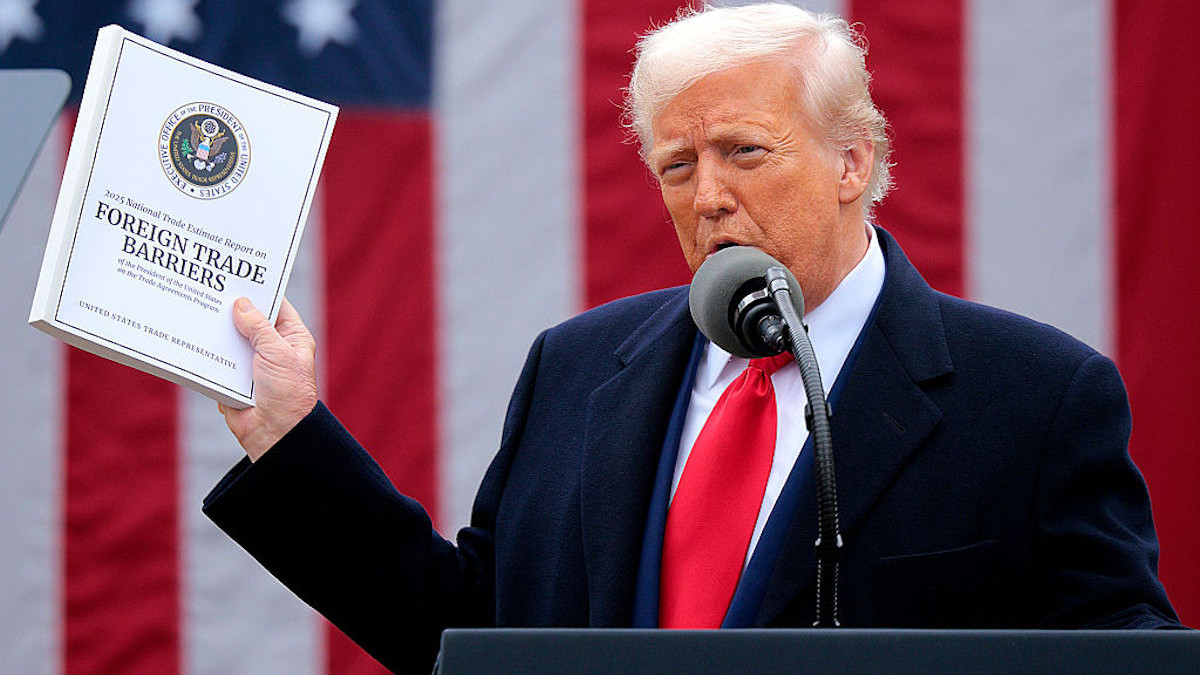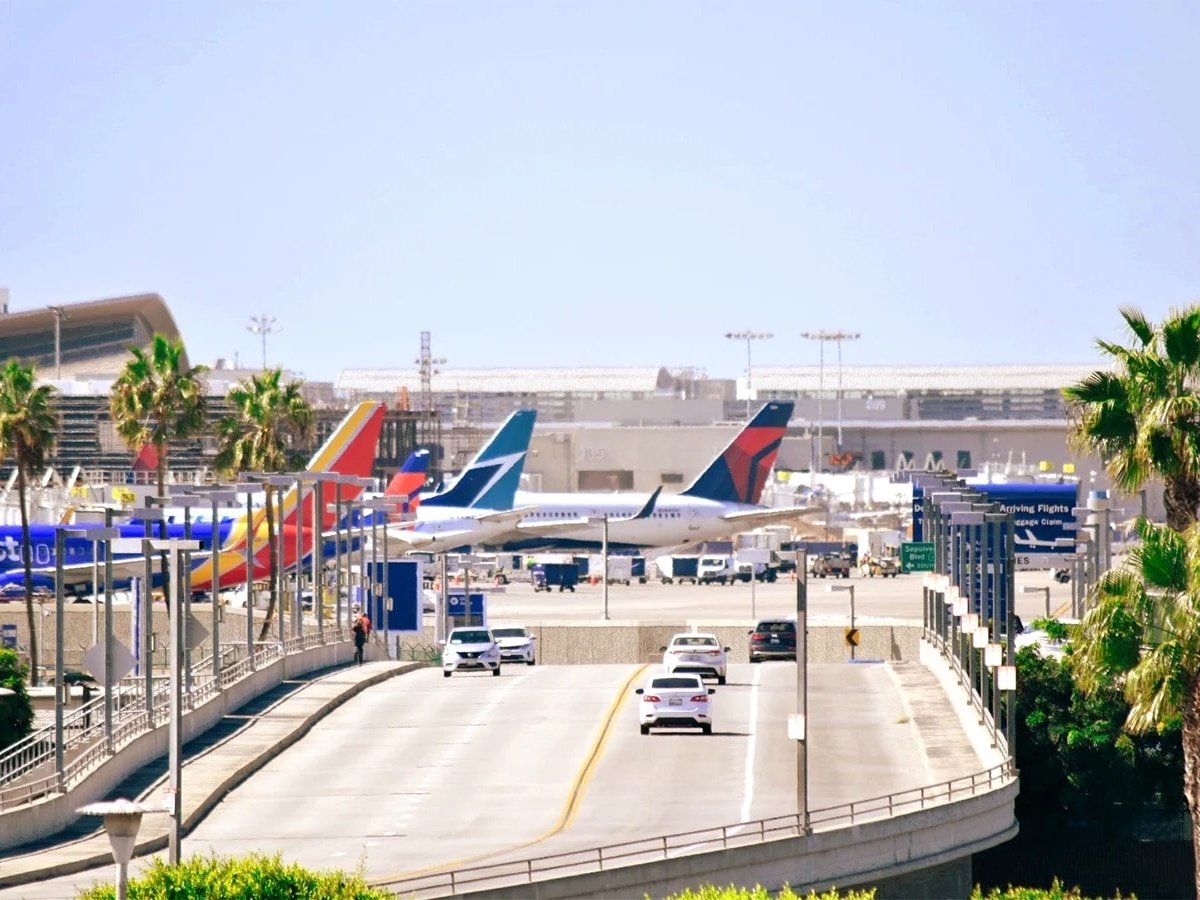China Contemplates Banning Hollywood Movies In Response to American Tariffs
Relations between the United States and China have been very fragile for the last several years, and Hollywood has felt the burn when it comes to international releases. China is a massive market for Hollywood and used to be a place where movies could bolster their box office success. But now, outlets like The Hollywood Reporter are saying that Chinese bloggers have intimated that the Chinese government is debating whether or not to ban Hollywood movie releases there as a retaliation for the tariffs. Now, over the last ten years, we've seen Hollywood blockbusters really suffer in China, with releases limited. We have already gone through Hollywood, where we have felt this hurt, and it was not fun. Reentering it would be another blow to an industry that needs a break. There was a time when the big market was a boon for Hollywood, and giant movies could count on hundreds of millions at the box office there, especially franchises like Fast and the Furious and anything in Marvel. And we are feeling that boom again right now. A Minecraft Movie opened at number one in China last weekend, generating $14.5 million in ticket sales. This represents just over 10% of the film's $144 million total international earnings, but the rollout there was big and that number will continue to grow, as long as it's allowed to stay in box offices. For comparison, the highest-grossing U.S. release in China during 2024 was Warner Bros. and Legendary’s Godzilla x Kong: The New Empire, which earned a substantial $132 million. We send a ton of movies to China, and they make money when they get there. Not that many Chinese movies come here, and they don't traditionally make a ton. This is a one-sided trade situation that would be good to keep open. Foreign films enter the Chinese market primarily in two ways: Revenue-Share: China commits to releasing 34 foreign films annually under this model, with international studios receiving 25% of ticket revenue. Flat-Fee Buy-Out: Used mainly for smaller-budget movies, this system involves a local Chinese distributor paying a fixed amount to import and release the film. Shutting off both these flows means American companies need to reconfigure how much they spend on movies and also determine how much they can actually make without the ability to make money in China. And as we enter the summer blockbuster season, you have to wonder how huge movies like Zootopia 2, Jurassic Park: Rebirth, Thunderbolts, and all the other massive titles will do if they don't go to China. And how that removal of revenue will affect studios. We'll keep you updated as the situation develops.


Relations between the United States and China have been very fragile for the last several years, and Hollywood has felt the burn when it comes to international releases.
China is a massive market for Hollywood and used to be a place where movies could bolster their box office success.
But now, outlets like The Hollywood Reporter are saying that Chinese bloggers have intimated that the Chinese government is debating whether or not to ban Hollywood movie releases there as a retaliation for the tariffs.
Now, over the last ten years, we've seen Hollywood blockbusters really suffer in China, with releases limited. We have already gone through Hollywood, where we have felt this hurt, and it was not fun. Reentering it would be another blow to an industry that needs a break.
There was a time when the big market was a boon for Hollywood, and giant movies could count on hundreds of millions at the box office there, especially franchises like Fast and the Furious and anything in Marvel.
And we are feeling that boom again right now.
A Minecraft Movie opened at number one in China last weekend, generating $14.5 million in ticket sales. This represents just over 10% of the film's $144 million total international earnings, but the rollout there was big and that number will continue to grow, as long as it's allowed to stay in box offices.
For comparison, the highest-grossing U.S. release in China during 2024 was Warner Bros. and Legendary’s Godzilla x Kong: The New Empire, which earned a substantial $132 million.
We send a ton of movies to China, and they make money when they get there. Not that many Chinese movies come here, and they don't traditionally make a ton. This is a one-sided trade situation that would be good to keep open.
Foreign films enter the Chinese market primarily in two ways:
- Revenue-Share: China commits to releasing 34 foreign films annually under this model, with international studios receiving 25% of ticket revenue.
- Flat-Fee Buy-Out: Used mainly for smaller-budget movies, this system involves a local Chinese distributor paying a fixed amount to import and release the film.
Shutting off both these flows means American companies need to reconfigure how much they spend on movies and also determine how much they can actually make without the ability to make money in China.
And as we enter the summer blockbuster season, you have to wonder how huge movies like Zootopia 2, Jurassic Park: Rebirth, Thunderbolts, and all the other massive titles will do if they don't go to China. And how that removal of revenue will affect studios.
We'll keep you updated as the situation develops.





![Lovecraftian City-Builder ‘Worshippers of Cthulhu’ Leaves Early Access May 22 [Trailer]](https://i0.wp.com/bloody-disgusting.com/wp-content/uploads/2025/04/worshippers.jpg?fit=900%2C580&ssl=1)
![How That Shocking Death in the “Daredevil: Born Again” Season Finale Came Together [Spoilers]](https://i0.wp.com/bloody-disgusting.com/wp-content/uploads/2025/04/OTK-109-59461_R-scaled.jpg?fit=2560%2C1707&ssl=1)













































![Prole Models [CITIZEN RUTH & INVENTING THE ABBOTTS]](https://jonathanrosenbaum.net/wp-content/uploads/2009/07/citizenruthposter1-209x300.jpg)

























































![Delta Seat Snaps, Passenger Vomits, Rushed to ER—Ceiling Panels Collapse on Two Other Flights [Roundup]](https://viewfromthewing.com/wp-content/uploads/2025/04/delta-air-lines-ceiling-panel.webp?#)










































































































































.jpg?#)


























































































































.jpg)





























































































































